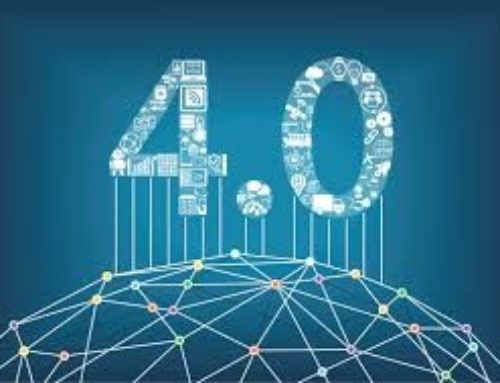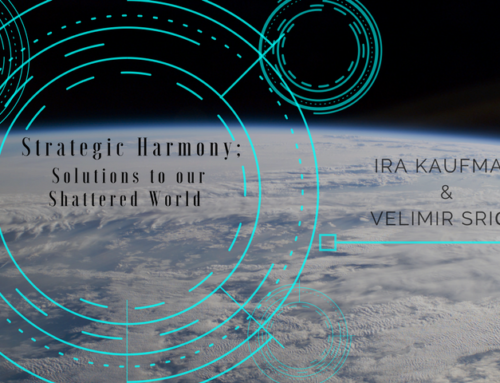“There’s a transformative shift in business, and what worked before is no longer an option. It’s time for evolved entrepreneurs, visionary creators, and changemakers to rewrite the rules of business for the 21st century.” Tony Hsieh, Founder, CEO Zappos (Amazon owned), recognized uncoventional business strategist, Designer of Corporate Happinness Culture
Who’s Knocking?
Every morning we wake up to 10+ notifications sharing the next disruptive technology, unprecedented political events, shocking climate, volatile money markets, devasting hunger, and radical new business models. They are knocking on our doors with posts and videos introducing trends and tools on innovation, leadership, healthy living, technology, and transformation.
Do you feel a bit overwhelmed with all the changes and how to process them?
Obviously, our private and business life requires an innovative approach to manage these exponential changes. Let’s follow the shift from the industrial to the information age and the translation to management.
Shift from Traditional Management
In the past 40 years there has been major changes in the practices and expectations of business. During the lifetime of Peter Drucker, “the founder of modern management”, the business marketplace has dramatically changed from industrial to consumer driven, and then information/data orientated. The command-and-control economy evolved toward a shared economy. Hierarchical management structures are being dismantled resulting in broken-down siloes and open communication channels. Power in the marketplace shifts from seller to buyer as the consumer demands real choices and a “voice’” for change. Incremental change is expanded to exponential change.
Most importantly, the shift has been in the culture of the largest consumer segment. Gen Z comprising 26% of the population are globally connected, sharing the same widespread digital culture. According to World Economic Forum predictions, 65% of today’s children will end up in careers that do not even exist yet.
Finally, leaders have lost touch with their constituencies undermining the foundation of leadership…trust. 2018 Edelman Trust Barometer offered a shattering snapshot of the deterioration in the trust (average less than 50%) among our leaders of media, politics, and profits and business. In the midst of this leadership crisis, executive teams across all institutions must rebuild this trust and navigate through the maze of disrupted industries and exponentially changing digital technologies.
But in this transition, faced with the VUCA (Volatile, Uncertain, Complex, Ambiguous) marketplace, most executives try to hold onto the model of traditional management to drive and sustain Digital Transformation. But it’s the rare executive from the hierarchical corporate setting who succeeds. The proof is in the outcomes… 84% of Digital Transformation efforts have failed and only 3% were attempted on an enterprise level.
Most global executives and leaders face the burning question: WHY?
The answer is not very complicated: Management must transform their operations to survive and leverage opportunities! They must redefine in the context of the changing World4.0.
What does it mean to rewrite the “rules of business for the 21st Century” and intergate these new inputs?
The Shift to Enlightenment
Enter Abraham Maslow in Maslow on Management, published two decades ago. He issued a truly visionary challenge to the assumptions that underlie the foundations that guide our socioeconomic system. He outlined the seeds of a paradigm shift in management and suggested changing the rules of the game. He re-defined leadership and management and “the concept “profit” necessarily involves the redefining of the concept “cost.” Also it requires the redefining of the concept “price.” Maybe I can approach the whole business from a different angle altogether, that is, from the angle of the critique of classical economic theory.”
He ignited the debate on the true purpose of business in an enlightened society. He defined the revolutionary idea of Enlightened Management in challenging contemporary business “The old-style management is steadily becoming obsolete…The more psychologically healthy [people get], the more will enlightened management be necessary in order to survive in competition, and the more handicapped will be an enterprise with an authoritarian policy…. That is why I am so optimistic about [enlightened] management… why I consider it to be the wave of the future.”
He realized that ”Enlightened Management” depended on the precondition — company’s leaders’, their employees’ and consumers’ interest converge. It is based on the following assumptions.
- Everyone is to be trusted.
- Everyone is to be informed as completely as possible (transparency)
- Team strives to achieve, quality workmanship, and efficiency
- No authoritarian leadership or subordination hierarchy governance
- Team shares ultimate managerial objectives across functions and operations
- Goodwill rather than rivalry or jealousy.
- Management is purely objective about other’s capacities and skills and one’s own.
- Team strives to self-actualization – to innovate, experiment, and make mistakes
- Team strives for good group harmony, enjoy good teamwork, collaboration, and group love.
- Everyone prefers to be a prime mover than a passive helper
- Line between business and community must be so tightly aligned that it’s impossible to separate them.
- Vision, mission, and values must be balanced with measuring profit, shareholder value
Maslow never had the time to measure and prove that Enlightened Management would lead to financial and economic success.The current disruptive digital environment challenges organizations to realize that World4.0 has evolved so that their old business model will not perform as expected. Executives are expected to make decisions with little experience or understanding of the unknowns that the exponentially changing World4.0 presents.
The Shift from OldCo to NewCo
Growing out of Maslow’s Enlightened model, Ed Freeman outlines a more responsible capitalism. He contrasts the Old Story of Business (built on hierarchy and Power) to the New Story of Business (requiring collaboration among key stakeholders). The OldCo is based solely on profits and maximizing shareholder value; its leadership is motivated by self-interest and greed; and business ethics is a contradiction. While the NewCo dispels these myths. It is based on purpose, values, and ethics to drive decisions; stakeholder interests are interdependent and outcomes mutually beneficial; tradeoff thinking is unacceptable; and sustainable strategies require collaborative, innovative solutions. Sustainable impact is a necessity.
The Shift to Transformation
Another shift in the R(E)volution of Management occurred with the events of 2016—Brexit, the election of Donald Trump, threats from terrorists and cybercriminals, climate change, and the adoption of digital technologies that connect our lives with the marketplace and global environment. Business leaders entered a new era requiring new ways of leading. Traditional management methods were insufficient to address the volume of change and interconnectedness they are experiencing in the business and related ecosystems.
As Allen Murray noted in the Wall Street Journal, firms practicing traditional management “missed game-changing transformations in industry after industry—computers (mainframes to PCs), telephony (landline to mobile), photography (film to digital), stock markets (floor to online)—not because of ‘bad’ management, but because they followed the dictates of [what they considered] ‘good’ management.”
Both worlds are now equally impacted by World4.0. Disruption is unpredictable, inescapable and constantly knocking at our door! It is happening so quickly and at a scale it’s hard to “defend” against. Whether we’re looking at the resurgence of right wing politics, Airbnb, Thumbtack, Uber, or pop-up restaurants (linking star chefs to foodies), we are learning that there is no one-size-fits-all transformation.
These breakthrough enterprises move beyond the traditional product and service centered business model to leverage the exponential opportunities of a network driven model. They demonstrate that DIGITAL is Transforming. Digital doesn’t just affect technology and mindset but affects everything from decision making to value creation, from talent acquisition to innovation, from measurement to sustainable outcomes. The lesson is pervasive with far reaching implications for businesses and organizations globally.
What is the thread in “Shifts in Management Thinking”?
RESILIENCE!
It is to be ready and prepared for unforeseen change. The ability of an organization to anticipate, respond quickly, decisively and adapt to change and sudden disruptions to survive and sustain.
When we hear disruption knocking, we must be resilient… ready to move and migrate our organization through the process of Strategic Transformation. It is the resilience of an organization to anticipate, respond quickly, decisively and adapt to change and sudden disruptions to survive, scale and sustain.
Strategic Transformation is the next step in the evolution of management. It is a clarion call to leaders and managers to anticipate the forces of change and navigate the organization on the path to win-win sustainable outcomes. It is based on values, collaboration and alignment of business and community.
What will it take to adopt Strategic Transformation?
Beyond the pervasive reality of disruption, there are formidable challenges of how to operate and execute in this ever-changing World4.0. Business has not caught up with Management thought leaders. The failure of most of Digital Transformation efforts is a living proof.
Maslow realized that the R(E)volution requires change of all institutions; but selected intuitions (e.g., Business) are more powerful and could lead the step-by-step process. Furthermore, transformation is complex; it must be:
- strategic designed for those institutions that are ready, committed and accept the evolution of the change process
- collaborative engage a harmonious team committed to cultivating diverse capabilities, through ongoing self-development
- experimental open to re-inventing, unpredictable, uncertain outcomes
Where to begin?
Strategic
- In the past transformation was a business choice, if it was in concert with the organization’s purpose. But in 0, there is no choice, Strategic Transformation is a necessity for survival and growth.
- Redefining the purpose of most businesses helped to maximize profits for their shareholders. This had been challenged by Maslow, ‘Accountants must turn human assets into balance sheet terms’ … “the line between business and community must be so tightly aligned that it’s impossible to separate them”. Paul Polman, CEO of Unilever adopted this challenge by replacing his sole focus on profits with optimizing sustainable outcomes for all stakeholders “We need a new economic model, a different business model. Not one based on being “less bad” or on occasional acts of benevolence, but one where business has a positive impact on society in all it does.”
Collaborative
- Most organizations have a “fixed mindset” resisting the challenge to adapt. They don’t have the skillsets or the talent to execute a transformation strategy. 60% of business leadersdon’t really know the possibilities associated with using next-gen technology. This poses massive opportunities for the few firms that pride themselves to create and “own” digital disruption, but it threatens thousands of jobs in companies not ready to innovate.
- The key to Strategic Transformation is harnessing the organization’s diverse capacity to remake its business and manage transformation in 0. Gary Hamel suggests, “A new kind of organization is emerging, capable of achieving both continuous innovation and transformation along with disciplined execution, while also delighting those for whom the work is done and inspiring those doing the work. These organizations have moved the production frontier of what is possible.”
Experimental
- To realize the potential of 0, the current technology infrastructure must be reconstructed with connectivity as the key. “The scale is vastly different. There are seven billion people on this planet, and the scale at which we currently connect is in the several billions. But for the industrial Internet of Things (IOT), we will need to connect hundreds of billions of devices. What kind of a network can accommodate so many devices at a reasonable cost?”
- Strategic Transformation in 0 is driven by Thinking Quantum to innovate at the gaps, unlock new opportunities, discover unpredictable outcomes and deliver new efficiencies. Transformation requires you to catalyze new value; replace incremental targets with exponentially outcomes; and sustain growth while continuing to evolve in the future.
- Mort Meyerson former Chairman and CEO Perot Systems led his team to increase revenues by 40% each year while implementing many of Dr Maslow’s principles.
We will conclude with a highly relevant insight from a CEO in the 1990’s:
“Business will be called upon to solve the problems normally delegated to governments. Increasingly, as our products are sold in the global market and our people work and live in a global community we represent the future. Let’s hope we get our values straight before we undertake this task.”
Enlightened Management was prescient focusing on the true purpose of businesss. Today’s executive is challenged to rethink his or her assumptions about business and relationships to meet the convergent interests of all stakeholders. The R(E)volution of Management is happening constantly as organizations are transforming to meet the demands of World4.0.
Prepared by
Ira Kaufman PhD, CEO Transformation Strategist, Social Entrepreneur and Educator. His company, Entwine Digital, works with midsize and multinationals to design values-based Digital Marketing and Transformation strategies and trains World Class Digital Leaders. His Strategic Transformation platform provides a values-driven framework for managing continuous change to fuel purposeful impact. He cofounded the Global Transformation Corps as an interactive network of experts, impact investors and emerging entrepreneurs to face the challenges and seize the opportunities of World4.0. He is co-author of Strategic Harmony… 21 Solutions to the Shattered World (2018)
www.entwinedigital.com; www.thinkcatalytic.com






Leave A Comment